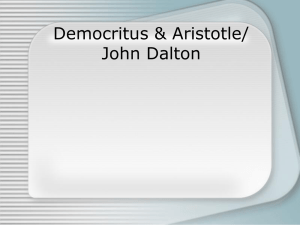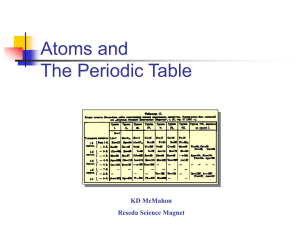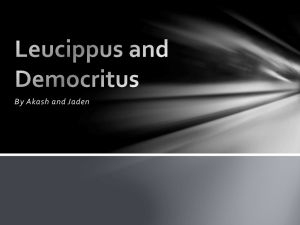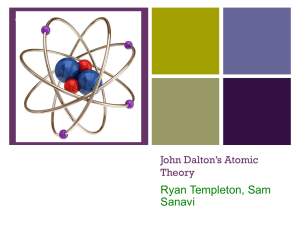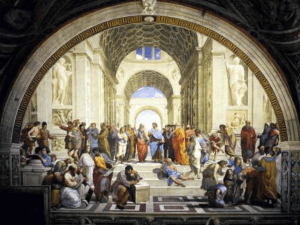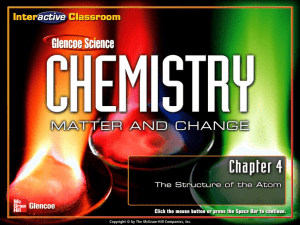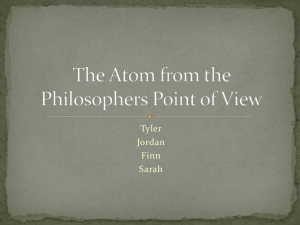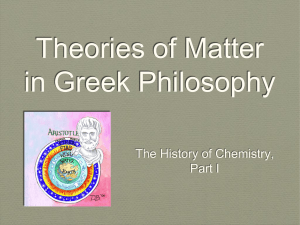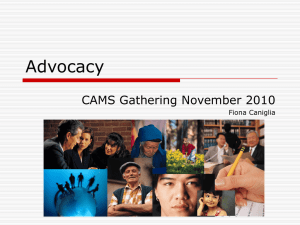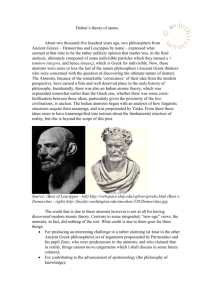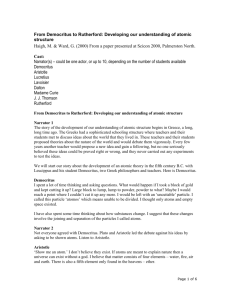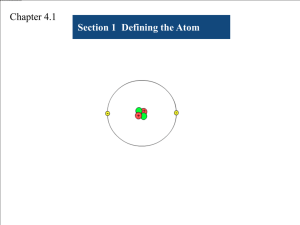Democritus, Aristotle, & John Dalton
advertisement
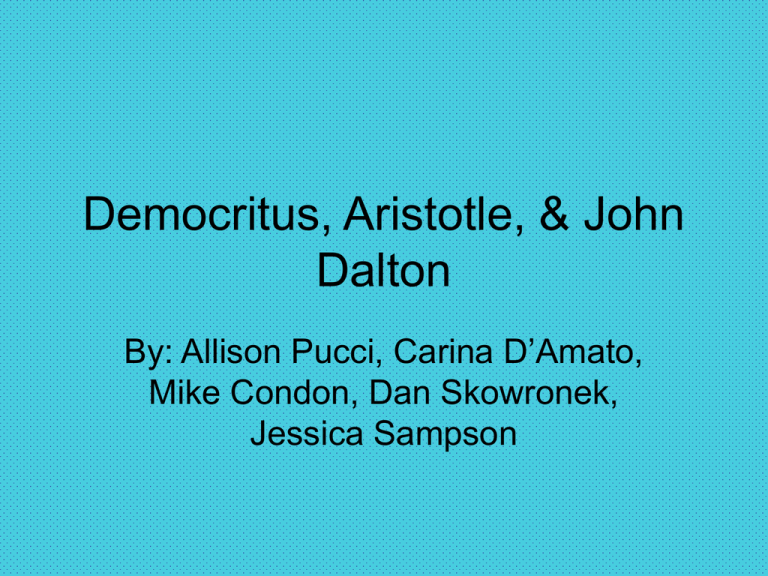
Democritus, Aristotle, & John Dalton By: Allison Pucci, Carina D’Amato, Mike Condon, Dan Skowronek, Jessica Sampson Who was Democritus? • Greek philosopher (460-370 B.C) • 1st person to propose the idea that matter wasn’t infinitely divisible. • acquired fame with his knowledge of natural Phenomena, and predicted weather change • main interests: metaphysics, mathematics, and astronomy Democritus’ Theory • expanded the atomic theory of Leucippus • matter made up of tiny particle were called atoms • atoms couldn’t be created, destroyed, or further divided • had an idea, but couldn’t support his theory • said the small pieces of matter that you couldn’t divide any smaller were called atomos, which means indivisible Evidence on his Theory • There was no evidence on Democritus’ theory because he couldn’t support his theory. Who was Aristotle? • Greek philosopher (384-322 B.C.) • Main interests: politics, metaphysics, science, logic, and ethics • Influences: Parmenides, Socrates, and Plato Aristotle’s Theory Disagreed with Democritus’ idea of matter Believed empty space didn’t exist Believed matter is made of earth, fire, air, and water Evidence of his Theory Got everyone to believe it, but he had no evidence Who was John Dalton? • School teacher in England; taught Chemistry • Lived from 1766-1844 • Thought about taking up law or medicine • Recorded weather in his hometown regularly John Dalton’s Theory • • • • • • Ideas similar to Democritus Took Democritus’ theory and tried proving it true Dalton’s Atomic Theory (see handout) Theory supports conservation of mass However, not all of it was true Thought that atoms couldn’t be broken down into smaller parts (protons, neutrons, and electrons) • Didn’t know that atoms of an element could have different properties (mass) Evidence of his Theory Studied numerous chemical reactions Made observations and measurements along the way Able to determine the mass ratios of the elements involved in those reactions Results are known as Dalton’s atomic theory. Citation Page Buthelezi, Thandi, Laurel Dingrando, Nicholas Hainen, Cheryl Wistrom, and Dinah Zike. Chemistry Matter and Change. New York: Glencoe, 2008. 102-104. "Democritus." 20 Oct. 2007. Wikepedia. 21 Oct. 2007 <http://en.wikipedia.org/wiki/Democratus>. "John Dalton." Wikepedia. 19 Oct. 2007. Wikepedia. 21 Oct. 2007 <http://en.wikipedia.org/wiki/John_Dalton>. Anthony Carpi, Ph.D. "Matter: Atoms from Democritus to Dalton," Visionlearning Vol. CHE-1 (1), 2003. http://www.visionlearning.com/library/module_viewer.php?mid =49
